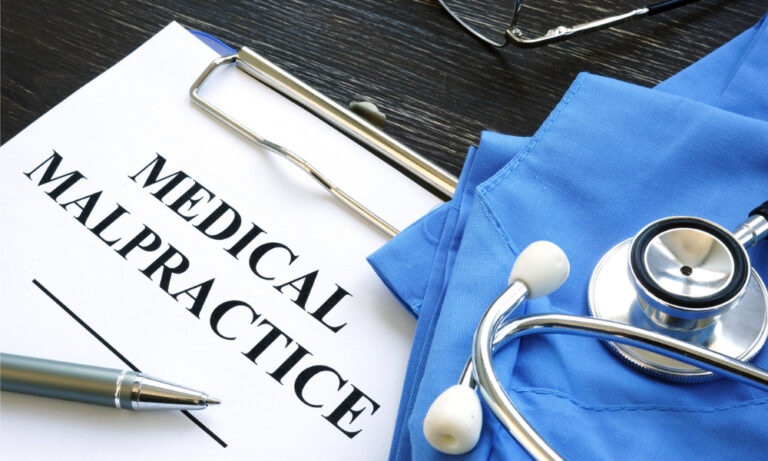Medical malpractice remains a critical issue in Florida, impacting patients, healthcare providers, and legal professionals alike. With evolving laws and regulations, understanding the latest legal developments is essential for anyone navigating these complex cases.
As 2025 approaches, recent updates to Florida’s medical malpractice laws aim to address ongoing challenges and improve accountability within the healthcare system. These changes could significantly influence how claims are filed, defended, and resolved, making it crucial to stay informed.
Whether you’re a patient seeking justice or a professional protecting your practice, knowing these legal insights can help you prepare for the road ahead.
Defining Medical Malpractice Under Florida Laws in 2025
Medical malpractice involves a healthcare provider’s failure to meet the accepted standard of care, directly causing harm to a patient. In Florida, statutes mandate that malpractice claims demonstrate four elements: a duty of care, breach of duty, causation, and damages. The duty arises from the provider-patient relationship, while a breach reflects negligence compared to peers in similar situations.
For 2025, legal updates continue requiring an expert affidavit to validate a claim before filing a lawsuit. This affidavit ensures the alleged negligence has merit based on established medical standards. Claimants must act within Florida’s two-year statute of limitations, beginning from the date of injury or its discovery, provided it’s within the four-year statute of repose.
Economic damages, including medical costs and lost income, remain uncapped, while non-economic damages like pain and suffering are capped at $500,000 for practitioners under most circumstances. Wrongful death cases involving medical negligence may have different limitations.
Clear documentation and legal expertise are crucial in building a case. Florida medical malpractice lawyers, including firms like Michles & Booth, assist claimants in understanding their rights and navigating these complexities efficiently.
Patient Rights: What to Do if You Suspect Negligence
Understanding patient rights is essential for those suspecting medical negligence. Patients are entitled to safe and competent care from healthcare providers. Suspected negligence requires immediate action to protect legal options and ensure accountability.

Document Every Detail
Maintain detailed records, including medical reports, prescriptions, and communication with providers. Accurate documentation supports claim validity.
Seek a Second Opinion
Consult another medical professional to confirm injury, inaccurate diagnosis, or substandard care. A second opinion strengthens potential claims.
Request Medical Records
Request complete copies of treatment records. Under the Health Insurance Portability and Accountability Act (HIPAA), patients can access their medical documents promptly.
Consult Florida Malpractice Lawyers
Legal experts, like Florida medical malpractice lawyers at firms such as Michles & Booth, assess case strengths, clarify legal options, and guide victims through intricate claims. Engaging qualified attorneys improves the likelihood of securing rightful compensation.
Meet Statute of Limitations
File malpractice claims within Florida’s two-year limit from the injury date or its discovery. Adhering to this timeline ensures legal protection.
Key Updates to Florida’s Medical Malpractice Laws
Florida introduced notable updates to medical malpractice laws for 2025, aimed at strengthening claim assessments and ensuring procedural clarity. One key change requires plaintiffs to submit an expert affidavit confirming the validity of their allegations before initiating a lawsuit. These affidavits must demonstrate that the alleged negligence deviates from established medical standards.
Claim timelines remain consistent, with a two-year statute of limitations from the injury date or discovery and a four-year statute of repose. Exceptions apply in cases of fraud or intentional concealment. Economic damages remain uncapped, while non-economic damages are limited to $500,000 per claimant against most practitioners.
To support transparency, healthcare providers must comply with patients’ requests for complete medical records under the Health Insurance Portability and Accountability Act (HIPAA). Legal professionals, including Florida Medical Malpractice Lawyers like Michles & Booth, assist victims in navigating these updates by ensuring adherence to filing requirements and helping evaluate case merits. These changes underscore the importance of understanding legal obligations when pursuing medical negligence claims.
Common Types of Medical Errors Leading to Lawsuits
Various medical errors frequently result in malpractice lawsuits in Florida. These errors highlight the critical need for healthcare providers to meet the state’s accepted standard of care.
- Misdiagnosis or Delayed Diagnosis
Misdiagnosis or delayed diagnosis often leads to incorrect treatments or prolonged illnesses. For example, failing to detect life-threatening conditions like cancer or strokes directly impacts patient outcomes.
- Surgical Errors
Surgical errors include leaving foreign objects inside patients, performing unnecessary surgeries, or operating on the wrong body part. Such mistakes are considered clear deviations from expected medical standards.
- Medication Errors
Medication errors involve prescribing incorrect dosages, administering the wrong medication, or failing to account for harmful drug interactions. These incidents can cause severe side effects or fatalities.
- Birth Injuries
Negligent prenatal care or errors during delivery can result in birth injuries like cerebral palsy or Erb’s palsy. These cases often lead to significant legal claims due to the lifelong impact on affected children and families.
- Anesthesia Errors
Improper anesthesia dosage or failure to monitor the patient’s vitals during surgery can cause brain damage or death. Such errors signal clear negligence in adhering to safe healthcare practices.
- Failure to Obtain Informed Consent
Lawsuits arise when healthcare providers proceed with treatments or surgeries without fully explaining potential risks or alternatives, leaving patients unaware of the consequences.
Florida medical malpractice laws emphasize strict adherence to care standards to reduce these errors. Florida medical malpractice lawyers, including Michles & Booth, help victims navigate legal processes when negligence results in harm.
Understanding the Statute of Limitations for Malpractice Cases
The statute of limitations determines the timeframe for filing a medical malpractice claim in Florida. Claimants generally have two years from the date of the incident or the discovery of harm to initiate legal action. A four-year statute of repose limits claims for injuries discovered after this period unless fraud or intentional concealment occurred.
For minors under eight years old, exceptions apply, allowing claims to be filed until the child’s eighth birthday. However, these exceptions don’t extend beyond the statute of repose unless fraudulent behavior is proven. Adhering to these deadlines is critical for pursuing a valid case.
Florida medical malpractice lawyers, such as those at Michles & Booth, can help individuals understand timeframes and identify applicable exceptions. Lawyers ensure compliance with filing rules to secure a viable claim. Early consultation mitigates risks of missed deadlines and supports case preparation.
Collecting Evidence to Support a Medical Negligence Claim
Gathering evidence is critical when building a medical malpractice case. In Florida, proving negligence requires documentation that establishes a healthcare provider’s deviation from the accepted standard of care.
Obtaining Medical Records
Claimants should request complete medical records, which serve as primary evidence. Under HIPAA, healthcare providers must comply with requests for records within 30 days. Records, such as treatment notes, lab results, and imaging reports, help demonstrate errors or omissions in care.
Documenting Interactions
Patients must maintain a detailed log of all interactions with healthcare providers. Notes regarding symptoms, diagnoses, prescribed treatments, and verbal communications can provide context for identified negligence.
Securing Expert Testimony
An expert affidavit is mandatory to validate claims before filing lawsuits in Florida. Medical professionals specializing in the relevant field must confirm that the care provided fell below acceptable standards. Florida medical malpractice lawyers often collaborate with qualified experts to strengthen claims.
Preserving Physical Evidence
If a medical device or product caused harm, retaining the device in its post-incident state is essential. Photographic evidence or forensic analysis may also be required to document physical injuries.
Consulting Legal Professionals
Working with Florida medical malpractice lawyers ensures evidence collection adheres to legal standards. Firms like Michles & Booth assist claimants in obtaining essential documentation, securing expert opinions, and organizing evidence effectively to meet court requirements.
The Role of Expert Witnesses in Medical Malpractice Trials
Expert witnesses provide critical evaluations in medical malpractice trials, offering insights into whether a healthcare provider’s actions deviated from the accepted standard of care. Their testimony establishes whether negligence occurred and directly caused the patient’s harm.
Qualifications of Expert Witnesses
Expert witnesses in Florida malpractice cases must meet specific qualifications. They should possess substantial experience or board certification in the same medical field as the defendant. Florida mandates that experts actively practice or possess substantial knowledge relevant to the case.
Functions in Trials
Expert witnesses fulfill several key roles during malpractice trials:
- Case Validation: They provide pre-trial affidavits confirming that the alleged misconduct doesn’t align with medical standards.
- Explaining Standards of Care: They articulate the expected medical standards and clarify how these standards were breached.
- Establishing Causation: They identify clear links between the alleged negligence and the harm suffered by the patient.
Impact on Case Outcomes
Courts heavily weigh expert testimony in determining if a case proceeds or secures a favorable outcome for claimants. In many cases, credible expert insights significantly influence jury decisions by simplifying complex medical concepts.
Florida medical malpractice lawyers, including firms like Michles & Booth, often partner with highly qualified witnesses to strengthen claims. Legal professionals ensure expert witnesses adhere to procedural requirements, bolstering the validity of cases in compliance with state laws.
Differences Between Settlement and Trial in Malpractice Cases
Settlements and trials represent two distinct paths for resolving medical malpractice cases in Florida. Understanding their differences helps plaintiffs make informed decisions.
Settlement Characteristics
- Time Efficiency: Settlements usually resolve faster compared to trials, often within months. Trials can extend for years based on complexity.
- Cost Implications: They are less costly since they avoid extensive court and expert fees. Trials often involve higher legal expenses.
- Confidentiality: Settlements typically remain private, protecting reputations. Trials occur in public court, making details accessible.
- Negotiation Outcome: Agreements in settlements result from negotiations and reflect compromise from both parties. Trials depend solely on the court’s decision.
- Jury Verdict: Trials lead to a final decision made by a jury or judge, potentially offering higher awards for damages if the verdict favors the plaintiff.
- Legal Process: They involve detailed procedures, including discovery, expert testimonies, and hearings. Settlements bypass these in-depth processes.
- Uncertain Outcome: The result is unpredictable, depending on presented evidence, experts, and jury perceptions. Settlements provide more control over the outcome.
Florida medical malpractice lawyers, including Michles & Booth, play key roles in advising claimants on pursuing settlements or proceeding to trial based on case specifics.
Protecting Your Rights When Filing a Claim in 2025
Navigating medical malpractice claims in Florida requires a thorough understanding of the updated legal landscape. Staying informed about recent changes and adhering to strict procedural requirements is essential for protecting your rights and building a strong case.
Whether you’re a patient seeking justice or a healthcare professional safeguarding your practice, legal expertise is invaluable. Consulting experienced Florida medical malpractice lawyers ensures compliance with filing deadlines, strengthens claim validity, and provides guidance through complex legal processes.
By taking proactive steps, such as maintaining detailed records, securing expert affidavits, and understanding your legal options, individuals can pursue accountability effectively. The 2025 updates aim to enhance fairness and clarity, making it crucial for all parties involved to remain vigilant and informed.













